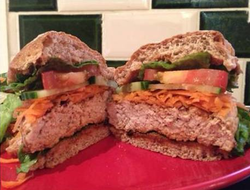Digestion and your gastrointestinal tract
Published: July 16, 2021
Digestion is the process by which the food and beverages you consume are broken down into a variety of nutrients which can be easily absorbed into your body.
Without the digestive process carbohydrates, lipids, amino acids, vitamins, minerals and other substances, such as phytochemicals, would not be available for the many biological processes which occur in your body.
Digestion takes place in your digestive system which is composed of all the organs which are associated with digestion such as:
- Your gastrointestinal tract
- Your liver
- Your gall bladder
- Your bile duct
- Your pancreas and your pancreatic duct.
Your gastrointestinal tract begins in your mouth and passes through the thoracic cavity (enclosed by your ribs and which houses your heart and your lungs).
It then passes through your diaphragm (a muscular sheath involved in respiration), and then through your abdominal cavity which houses the greater part of your gastrointestinal tract.
The gastrointestinal tract ends at the rectum and anus.
Structurally your gastrointestinal tract is a long muscular tube which varies in diameter along its length.
In human anatomy the gastrointestinal tract is positioned in a similar way to the cardboard roll in the centre of a roll of kitchen towels.
Digestion of food and beverages takes place in the lumen, or central space, of the tube. The principle organs of digestion are the...link to the full article to learn more.
Related Topics
Digestion Hormones Metabolism Nutrients Fats Carbohydrates Minerals Vitamins Your BodyReferences
1.
Whitney, E. & Rady Rolfes, S. (2005). Understanding Nutrition. Belmont, CA: Thomson Wadsworth
2.
Gropper, S.S., Smith, J.L. & Groff, J.L. (2005). Advanced nutrition and human metabolism. Belmont, CA. Thomson Wadsworth

